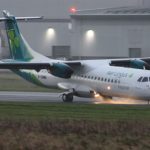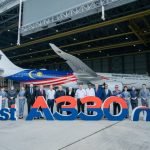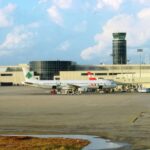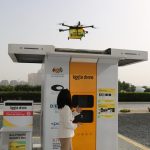Ryanair, Europe’s leading low-cost airline, unveiled «Pathway To Net Zero», its decarbonization strategy to achieve carbon neutrality by 2050.
Aiming to reduce greenhouse gas emissions and the environmental impact of its operations, the program will rely on four strategic pillars to achieve net-zero emissions. Those pillars are: increased use of sustainable aviation fuels, technological and operational improvements, carbon footprint offsetting and improvements in air traffic management.
In 2021, in collaboration with Trinity College Dublin, the company established the Ryanair Sustainable Aviation Research Centre. This is a partnership that will investigate options for the production of SAF and other zero-emission propulsion alternatives. The company committed to achieving 12.5 percent SAF in its operations by 2030.
In addition, Ryanair will invest $22 billion to purchase 210 Boeing 737-8200 «Gamechanger», the high-density version of the 737 MAX that seats up to 210 passengers. These aircraft emit 16% less carbon dioxide and have a 40% lower noise impact compared to previous models.
Another strand of the program will be linked to carbon footprint offsetting and the promotion of environmental policies. In this regard, Ryanair will support the implementation of the SESAR initiative, a collaborative project to survey European airspace and optimize its management. Its entry into force would standardize air traffic management and reduce aviation emissions in the continent by 10%.
«As Europe’s greenest major airline, Ryanair understands that aviation plays a pivotal role in tackling climate change and our Pathway to Net Zero will help us do just that», said Thomas Fowler, Director of Sustainability.
See also: Flying Ryanair’s «Gamechanger» 737 MAX 8200: 197 seats and a consistent experience













